ИНФОРМАЦИЯ О ПРОДУКТЕ
book introduction
look outside the well
A better view of our history!
A professor who knows Korean history better than Koreans
An interesting and beautiful historical story from a historian
Why are there so many people in Korea with the surname Kim?
Korean history is a peaceful and stable history!
Dr. Shin Chae-yong asks and Professor Mark Peterson answers
Mark Peterson, professor emeritus at Brigham Young University in the US, is an expert in Korean studies and a YouTuber who runs a YouTube channel called “The Frog Out of the Well” (currently has about 140,000 subscribers). This book helps us to understand our history in a more world-historical and objective way by looking at our history from the perspective of a foreigner and an expert in Korean studies. Dr. Shin Chae-yong, a historian, asks, and Professor Mark Peterson answers. Let's listen to interesting and beautiful history stories of a professor who knows Korean history better than Koreans and a Korean historian.
index
prologue | The Frog Out of the Well's Relationship with Korea, an Opportunity to Study Korean History
Introduction | View of the Korean history of the frog outside the well
chapter 1
Korea with a peaceful and stable history
Chapter 1 | Korea has not suffered many invasions!
Chapter 2 Stable Korean history seen through major surnames such as Kim, Lee, and Park
Chapter 3 A Thousand-Year Border, Yalu River
Chapter 4 Ondol Culture, Symbol of Peace and Stability
Chapter 5 Korean tombs were not robbed
Chapter 6 Why there is no feudal system in Korean history
Chapter 7 Han? Koreans are an exciting nation!
Part 2
Confucianism in Korea is different from Confucianism in China.
Chapter 1 Free and Open Confucianism in Korea
Chapter 2 History through genealogy
Chapter 3 Ojukheon is the house Shin Saimdang inherited from her mother
Chapter 4 Daughters also held ancestral rites!
Chapter 5 Changes in the Quantum System
Part 3
Munchi and scholar culture, the beauty of Korean history
Chapter 1 | Korea, the country of Munchi
Chapter 2 Seonbi culture different from samurai
Chapter 3 The Great Alphabet, Hangeul
Chapter 4 There is also a genealogy of eunuchs!
Chapter 5 History of Korea's Nobi System
Chapter 6: Can Genealogies Be Trusted?
Chapter 7 Korean Sijo, Contributing to World Literature
Chapter 8 『Heungbujeon』 is resistance literature
epilogue | Request to Koreans
picture source

into the book
At first, I was very worried that YouTube viewers would be offended. I thought it would be right to call myself "the frog out of the well," but that would be relatively the same as referring to all of you as "the frog in the well," meaning that you don't see a problem in the broader light. But in fact, in a sense, that's exactly what I'm trying to say. Fortunately, this comment was not taken as arrogant or insulting. Rather, there are many comments on my YouTube channel supporting and cheering my idea of explaining the perspective of a frog outside the well as a non-Korean. They readily accepted my idea.
---Excerpted from "Prologue: The Frog Out of the Well's Relationship with Korea, the Reason for Studying Korean History"
My most basic view of Korean history is that most Koreans generally have a very distorted view of Korean history. It has been distorted by long years of poverty and oppression, and by external influences, especially Japan, sometimes intentionally and sometimes unknowingly. I think the general description of South Korea as a victim is very wrong. It is true, of course, that Korea was a victim of Japan in the late 19th century and most of the first half of the 20th century. This perception did not end even after liberation from Japan. The division of Korea, which caused more damage than Japan's colonial occupation, became a factor in the sense of victimization that still exists today. It is clear that sacrifice is a powerful theme in Korean history, but it is not the only theme in Korean history.
---Excerpted from "Introduction: The Korean History of Frogs Outside the Well"
Why did so many people have the surname Kim Lee Park? A key clue to understanding this problem came to me when I met a student from Japan a few years ago. She said her own surname was her Fujiwara (藤原). I knew that the surname belonged to a family that held power during the Heian period in Japan. So she told her that she knew that the name was an aristocratic class name from the Heian period, almost contemporaneous with her Silla period in Korea.
---From 「Chapter 2 Stable Korean History through Major Surnames such as Kim, Lee, and Park」
Publisher Reviews
Frog's point of view out of the well
This book explains Korean history from the perspective of a frog outside the well. Of course, I won't cover all the history. This book is not a comprehensive cover of Korean history from the beginning to the present. Rather, it covers only a few themes drawn from Korean history and culture. Of course, among them are literature and language. Readers can start and end any topic at any point they wish. You can read it backwards from the end if you want, or you can jump from topic to topic anywhere in the middle. However, there is a common theme or thread running through all the themes in this book. It is not just an outsider's point of view, but a point of view full of deep admiration and admiration for the truly original people (Koreans) in the history of the world.
Major themes running through Korean history
In this book, it is argued that the main theme running through Korean history is peace and stability. This is the opposite of what is often said and taught about Korean history as a “history of sacrifice.” To this end, we will compare Korean history with Japanese history a lot. For example, one chapter pays tribute to the Korean tradition of hiring government officials through written examinations (the past system) for more than a thousand years. Compare this to Japan's samurai history. They inherited the position at the expense of others, and when that failed, they committed suicide. Japanese history is only a story of life and death, murder and seizure of power. The one who seizes power in Japan is the one who has most successfully killed a rival. The daimyo who occupied the largest territory finally controlled the emperor. Japanese history is full of bloody stories. On the other hand, power in Korea goes to the best student who passed the first place in the past exam with the best writing skills and learning. Comparing Japan and Korea, in Korea the pen was literally mightier than the sword.
The monarchy collapsed as the traditional order collapsed and democratization, westernization and modernization began. Then the Japanese returned to the samurai spirit of the past, and this led to a world war as they fought to build the Japanese Empire. On the other hand, similarly, when the traditional world collapsed, Koreans, unlike Japan, returned to the spirit of scholars and immersed themselves in their studies again. And they finally built a powerful nation based on intelligence, not power or natural resources. The education of Korean intelligence is the key to understanding the dynamics of Korea today. You will see the flow of these themes through each chapter. In it, you will see the power for Korea to prosper, not just to survive, but to prosper.
Reasons for viewing Korean history as a peaceful and stable history
First, Korean dynasties have a long history.
Second, it is a smooth transfer of power between dynasties.
Third, Korea was relatively rarely invaded.
Fourth, Korea has never invaded another country since the Three Kingdoms period.
Fifth, the Yalu River(압록강), which kept Korea's borders safe, can be cited.
Sixth, Korean royal tombs were not robbed.
Seventh, scholars have continued to exist in Korean history for the past thousand years.
Eighth, control over the military.
Ninth, although not a good example, Korea has a long chain of slave ownership.
Tenth, in Korea, many people have a few surnames.
Publication date: 05 November 2022
Number of pages, weight, size
272 pages | 454g | 148*210*17mm
Fashion
Our premium fashion collection
Life Items
Our Life items are like a treasure trove waiting to be discovered

















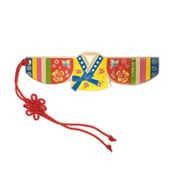
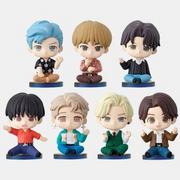
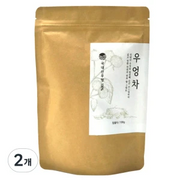
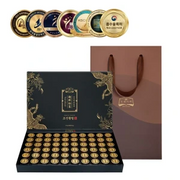









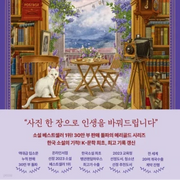






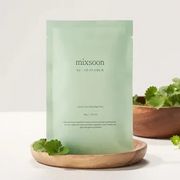






![Centellian24 [New] Madeca Prime Infinity](http://empresskorea.com/cdn/shop/files/0511-217_small.jpg?v=1715498559)